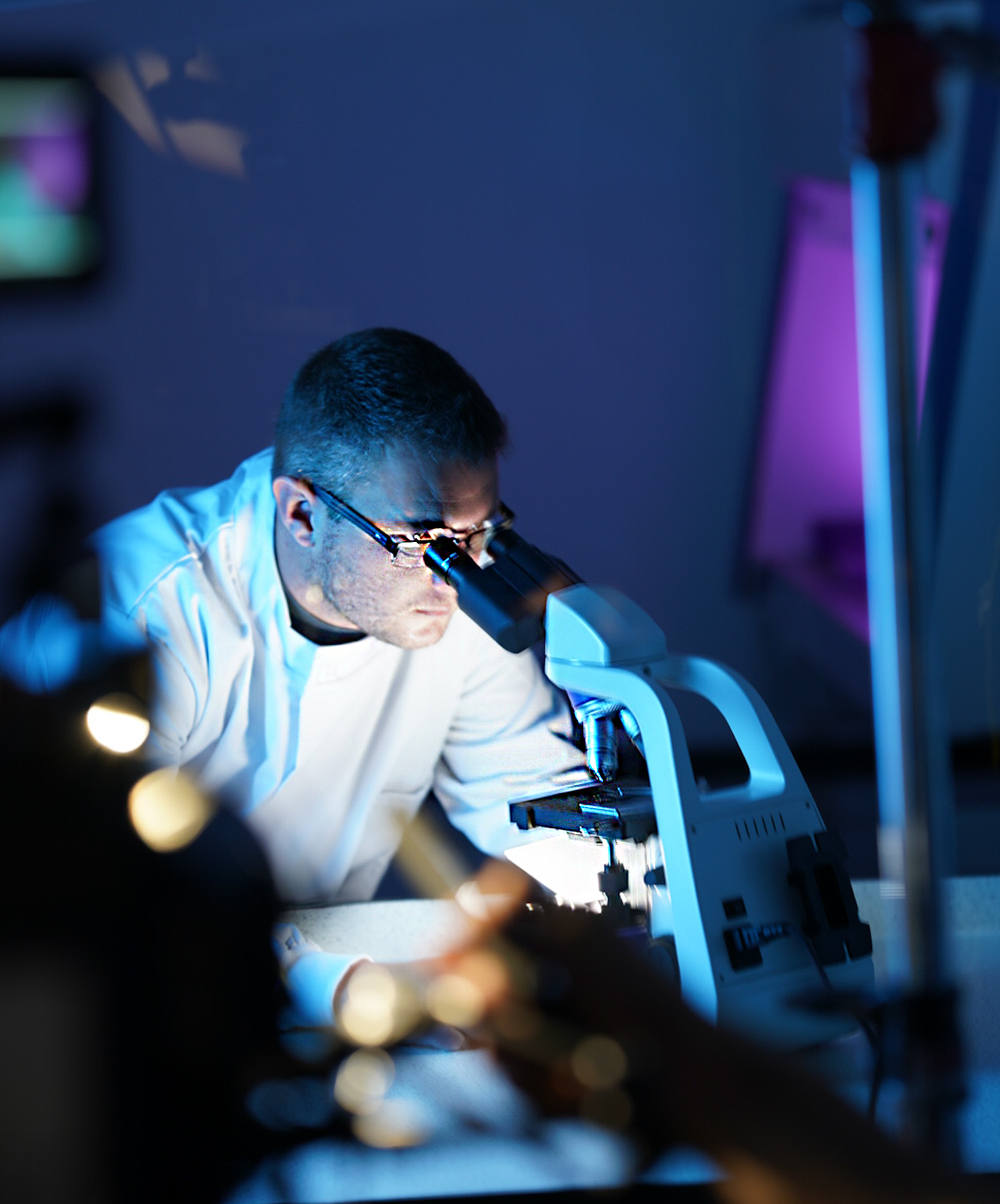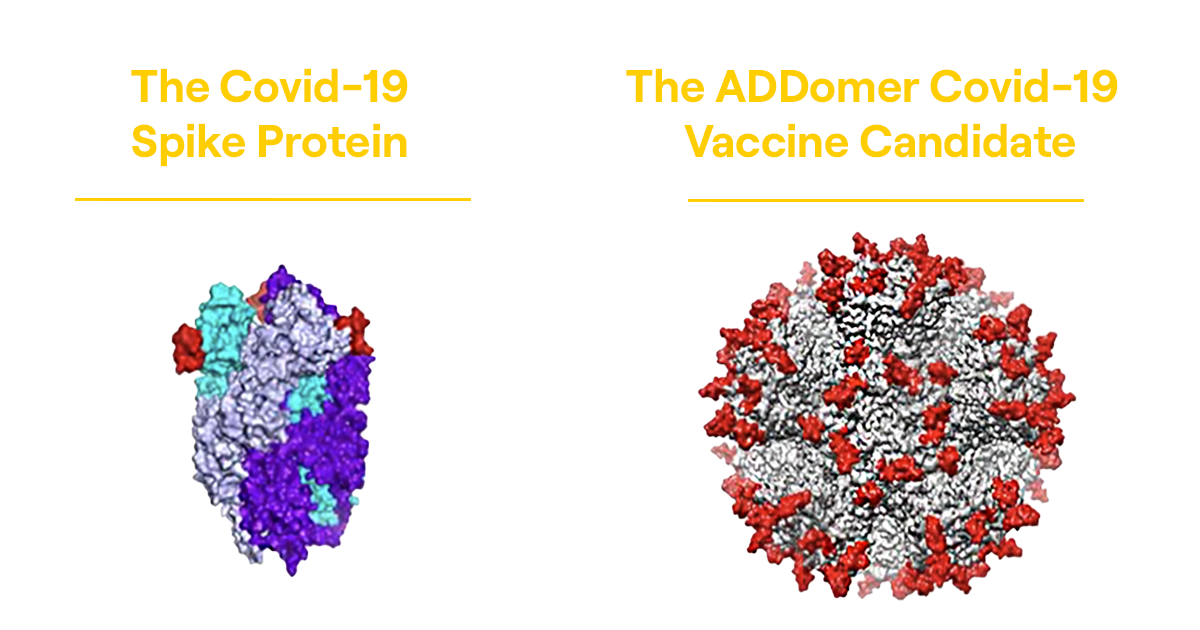CONTACT
Thanks for your interest in Science Creates. So we can get you to the correct team member, please tell us what you are looking for?
Imophoron is a company with serious relevance. It has a technology that could revolutionise vaccines at a time when it couldn’t be needed more. But there’s more to this deep tech story than the hot topic of immunisation. The company’s charismatic founder, Fred Garzoni has charted a difficult path from being an ‘unemployed’ founder in France, to relocating to the south west of England, right up to his latest £4m round of funding.
In 2017, shortly after the Brexit vote, Fred Garzoni left his home and family in France to move to the UK. His reason? To grow his vaccine start-up, which he believed had a significant advantage over current alternatives, both for existing and unknown diseases. Scientists have long predicted a ‘Disease X’, and COVID-19 has made the effects of such an outbreak painfully clear.
Throughout his career, Fred has always been torn between running a facility and conducting his own research project: “I’m a biochemist by training, I’ve made most of my career in academia in France’s scientific polygon and working with Imre Berger” a world-leading life scientist.
After eight years running the European Molecular Biology Laboratory’s (EMBL) Eukaryotic Expression Facility, Fred had investigated thousands of proteins. Structures like membrane proteins and virus-like particles, all with a multitude of applications. Then came the discovery of a lifetime, a protein that would not only change the course of Fred’s career but potentially the vaccine landscape. The ADDomer.
“When we came to the ADDomer we immediately realised that it was unique, in that it was one of the easiest to express proteins that I had seen. It was thermostable, we could make a lot of it and we could engineer it.”
However, the discovery also brought about a dilemma:
“At the same time as we made the discovery, Imre, who I was working closely with, was appointed as a Professor at the University of Bristol (UoB). He wanted me to run his UoB facility because, according to him, I’d been doing it so well for the past eight years in France. However, I knew the ADDomer protein had a future and that the academic world was too small for such a project. I declined Imre’s offer and quit my job at EMBL.”
“I thought that making the jump from academia to setting up a company in a place where I’d spent 15 years, was going to be super easy. However, I soon discovered how difficult that jump can be. I spent a year and a half unemployed trying to get Imophoron off the ground.”
Starting any company inherently comes with challenges. Starting a company on your own, based on a completely new scientific discovery, presents a unique set of requirements. Often the only people who truly understand this are those that have been there and done it. Herein lies the challenge to spinning out a successful scientific start-up: who do you turn to for advice and support?
“I was disappointed. I have two children and being unemployed for more than a year started to get tough. I was beginning to ask myself some difficult questions regarding the business when Imre told me he’d met a guy called Harry Destecroix [Science Creates’ Founder] in Bristol. Imre had noticed that mine and Harry’s stories aligned and that since going through the same challenges Harry had set up an incubator in Bristol. Imre told me exactly these words:
‘I think you guys will get along very well and the home you are seeking for Imophoron might be here in Bristol.’
“This was during Brexit, and it wasn’t like every entrepreneur in Europe was dreaming of coming to the UK. People were more inclined to wait and see what would happen or even leave the UK. The BBSRC put a grant on the table, called the Future Talent and Mobility Award, to attract projects to the UK. We decided to write an application and were told yes after two weeks. Two weeks after that, and after chatting to Harry, I packed my bags and came to Bristol to establish Imophoron in the UK. I left my wonderful girlfriend and two kids in France, which is perhaps the biggest investment I’ve made in the company.”
Originally the grant was for three months, then it was extended to six, then nine. Everything was going well at Imophoron. In August 2018, the news broke that Harry sold his company Ziylo to Novo Nordisk in a deal worth a potential $800million. This was the proof that Fred needed. The proof that a deep tech innovation can be successfully purchased by a big international company, it just needs the correct environment around it. Fred knew his science but needed help with turning it into a successful business.
“I didn’t know [about] accountants, lawyers and everything you need to set up a company. As a scientist, you don’t have a clue about that. The incubator proved to be the right model, resulting in successful funding for lots of the different companies there, including Imophoron. We closed the first investment round, started to structure the company, and to structure our minds too.
“Harry introduced me to the fantastic Jackie Turnbull [a biotech business development specialist]. She helped me to focus my mind whilst we were finishing our first proof of concept – a vaccine candidate for Chikungunya. We published the paper in Science Advances, proving that the ADDomer platform is effective and safe, and that we could develop a Chikungunya vaccine rapidly. It showed what we can do with the ADDomer and that it could potentially bring a vaccine forward against Chikungunya. The disease is a growing issue, and there are no vaccines against it on the market to date.
“This is what makes the ADDomer so powerful. It’s based on the idea that ‘one day a virus could hit us and the world is not prepared.’ With the ADDomer, we can develop new vaccines in response to emerging diseases and do it quickly.”

Fred had no idea how timely the discovery of the ADDomer was. In early 2020 a new coronavirus, SARS-CoV-2, began transmission in communities in China. By March 11th 2020, COVID-19 (as it became known) was declared a full-blown global pandemic.
This didn’t come as a surprise to Fred and his colleagues. They were well aware that ‘Disease X’ (a term used to represent an unknown pathogen that could cause a pandemic) could come along at any time. Fred dropped everything he was doing and joined forces with Bristol’s top immunologists, virologists, synthetic biologists and more, in the COVID-19 Emergency Research group (UNCOVER).
Working with a Bristol hospital, they built a library of proteins for hospitals to help with the race to create a COVID-19 test. Alongside the UNCOVER group and the Berger Schaffitzel group, Fred used his knowledge to produce “tonnes of different proteins” including spikes, receptor binding domains and ACE2 proteins. Fred and the UNCOVER team were shipping proteins seven days a week, for six months.
“I used knowledge available based on MERS and SARS-CoV to create a COVID-19 vaccine using ADDomer in just five weeks. We made a second proof of concept with UNCOVER that we will publish in 2022. It’s a thermostable intranasal delivery of the COVID-19 vaccine using the ADDomer platform.”
It’s this thermostable property of Imophoron’s vaccines that makes the technology so powerful. The synthetically engineered protein will remain effective in temperatures up to 55°C, meaning that a vaccine made with the ADDomer will require zero refrigeration at any stage of its journey. The impact of this could be giant – reducing vaccine inequality across the globe and potentially curtailing pandemics quicker.
By August 2020, following the successful creation of a test for COVID-19, Fred decided to return to his role as CEO of Imophoron. After a hectic six months, he started to raise money, pitch to investors and present them the technology.

On October 7th 2021, Science Creates Ventures announced their co-lead in a £4million round of investment into Imophoron. However, investment is only one piece of the puzzle, you also need exceptional people to drive a company forward.
Fred explains: “Now we have raised the money we will expand the lab, hire more people: a Head of Immunology, an Office Manager and so on, because so far I’ve been doing pretty much everything from designing the vaccine to paying the bills. I need support.”
The next stages, facilitated by the recent round of funding, will be to demonstrate the vaccine platform’s capabilities against 3 disease targets: Chikungunya, COVID-19 and RSV (Respiratory Syncytial Virus). The capital will allow Fred, and his newly assembled crack team of scientists, to keep refining the ADDomer protein at the heart of Imophoron’s technology and start thinking about taking the innovation to clinical trials.
Taking a potentially ground-breaking discovery from an academic environment through to human clinical trials is a bold move, but for Fred and Imophoron it will be achieved with the support of a special network.
“Without Science Creates’ incubator in St Philips, I don’t know what would’ve happened with the project. Besides me (who quit my job, refused a job offer and took all the risk) it took Imre and Harry to believe in me. They immediately saw how important this could be.
“There’s no ecosystem like Science Creates that I know of in France or possibly Europe. One that specifically fosters deep tech, where you can find accountants, lawyers, a lab, an office, business development opportunities; all by just talking about it over a beer.”
As the world continues to grapple with the COVID-19 pandemic and its social and economic effects, it is now clearer than ever that we can’t be over prepared for the next risk from infectious diseases. As a society, we are indebted to scientists like Fred, who are working tirelessly to broaden our suite of tools to protect us from harm. But what is it that motivates Fred through tough times?
“I don’t know, I’ve never asked myself this question. It’s just from the moment I saw the technology I thought it was going to be so easy, maybe I still do. Another thing is that we are targeting RSV, a disease killing babies. I’ve got kids and think ‘perhaps I can help. Maybe I can save a couple of lives there.’ I have always been a determined person, and that was before COVID. Now you see the whole world in lockdown and people dying. Maybe for the first time in my life, I truly understand the value of the work we do as scientists.”
For the latest updates and developments at Imophoron, follow them on Twitter & Linkedin.
We may use cookies, web beacons, tracking pixels, and other tracking technologies when you visit our website, please read out privacy policy for more information.

Science Creates St Philips, Albert Road, Bristol, BS2 0XJ
Science Creates Old Market, Midland Road, Bristol, BS2 0NS
Science Creates Ventures LLP “trading as SCVC” (FRN: 933134) is an Appointed Representative of Kin Capital Partners LLP “KCP”, which is authorised and regulated by the Financial Conduct Authority (FRN: 656789).